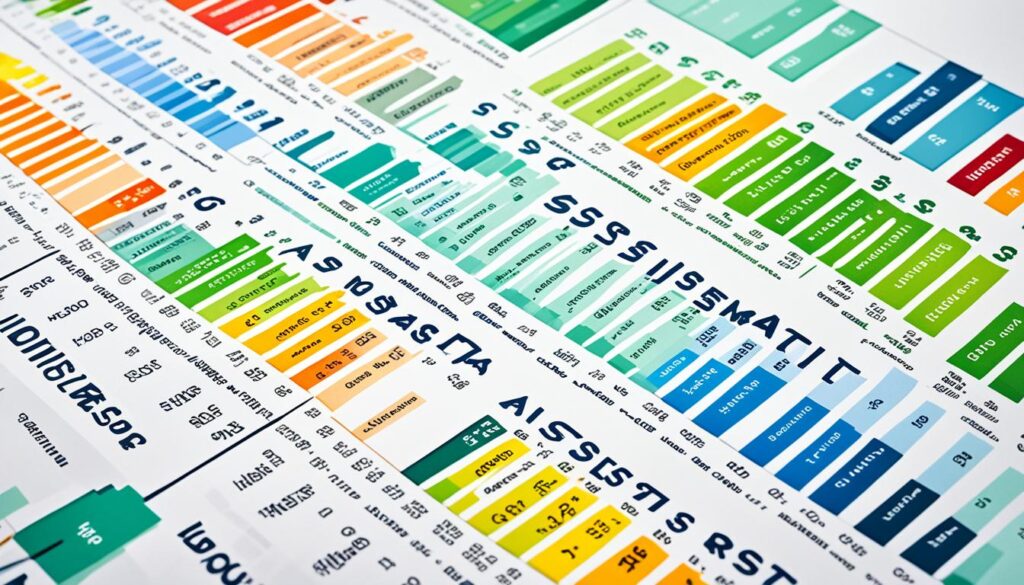When it comes to managing your finances, understanding the difference between income and assets is crucial. While these two terms may seem similar, they have distinct meanings and play different roles in your financial life.
Let me tell you a story that illustrates the importance of this distinction. Meet Sarah, a hardworking professional who recently received a promotion at her job. With her increased income, she decided it was time to buy a new car.
Sarah had been diligently saving for this purchase and had managed to set aside a significant amount of money. However, when she visited the car dealership, she realized that her savings alone might not be enough to afford the car she wanted.
This is when Sarah realized the significance of assets in relation to income. While her income had increased, it was her assets – her savings – that would ultimately determine her buying power. Without enough assets, her dream of buying a new car would remain just that – a dream.
Understanding the relationship between income and assets can help you make better financial decisions. Lenders consider both factors when assessing your eligibility for loans and determining your borrowing capacity. By having a clear understanding of your assets and income, you can better navigate the world of lending and ensure your financial plans align with your current financial situation.
Key Takeaways:
- Assets refer to the things you own, while income is the money you earn from these assets.
- Lenders consider both assets and income when determining loan eligibility and borrowing capacity.
- Understanding the distinction between income and assets can help you make better financial decisions and plan for the future.
- Assets include savings, investments, vehicles, and real estate, while income refers to the amount of money left after expenses.
- By managing your income and assets effectively, you can optimize your financial health and achieve your goals.
How Lenders Assess Assets
When applying for a home loan, lenders thoroughly assess the assets that applicants possess to determine their eligibility and borrowing capacity. These assets include savings, investments, vehicles, and real estate. By evaluating an individual’s assets, lenders can gauge their financial stability and ability to repay the loan.
However, not all assets are considered eligible when it comes to buying a house. For instance, retirement funds are typically not taken into account during the assessment process. It’s vital for potential homebuyers to have sufficient funds saved for a down payment and closing costs, as these financial resources can significantly increase the likelihood of loan approval.
To provide a clearer understanding, here is a breakdown of the assets that lenders consider:
| Assets for Home Loan | Eligibility |
|---|---|
| Savings | Considered |
| Investments | Considered |
| Vehicles | Considered |
| Real Estate | Considered |
| Retirement Funds | Not Considered |
By understanding how lenders assess assets and the importance of eligible assets for buying a house, individuals can proactively manage and strategically utilize their financial resources to increase their chances of loan approval.
How Lenders Assess Income
Lenders evaluate an applicant’s income to ensure its consistency over time. This assessment is crucial in determining loan approval and the borrower’s ability to make loan repayments. Lenders want to see a stable income that can support the financial obligations of a loan. Inconsistent income sources or a history of regularly missing bill payments can make it more challenging to get approved for a loan.
During the loan application process, the length of time it takes for a lender to make a decision varies based on the loan amount. However, with the necessary documentation, most mortgage applications can be processed in less than seven days.
It is important for borrowers to understand that lenders have specific criteria for assessing income consistency. Demonstrating a reliable and steady income stream increases the likelihood of loan approval. By providing the necessary documentation, such as pay stubs, employment contracts, or tax returns, borrowers can help lenders assess their income accurately and efficiently.
- Proof of Employment: Lenders typically require recent pay stubs or employment contracts to verify consistent income. Self-employed individuals may need to provide business financial statements or tax returns.
- Bank Statements: Lenders may request bank statements to confirm regular deposits and identify any irregularities in income patterns.
- Debt-to-Income Ratio: Lenders analyze a borrower’s debt-to-income ratio to ensure that the monthly loan repayments are affordable in relation to their income.
In addition to income consistency, lenders may also consider other factors such as employment history, employment type (full-time, part-time, or self-employed), and stability of income sources. It’s crucial for borrowers to provide accurate and comprehensive information about their income to enhance their chances of loan approval.
Understanding how lenders assess income and the importance of income consistency empowers borrowers to present a strong financial profile. Consistent income over time demonstrates the ability to handle loan obligations responsibly, increasing the likelihood of loan approval and favorable terms.
Understanding Net Worth
Net worth is a crucial indicator of your financial health. It represents the difference between your assets and liabilities, providing a comprehensive snapshot of your financial situation. Calculating and tracking your net worth is essential for evaluating progress towards your financial goals.
Net worth encompasses various aspects of your finances, including:
- Investments
- Bank accounts
- Retirement funds
- Real estate
- Personal items
It’s worth noting that certain assets, such as a personal residence, may be excluded from net worth calculations.
“Calculating net worth periodically allows you to gain a better understanding of your financial status and make informed decisions when planning for the future.”

By calculating your net worth regularly, you can evaluate whether your financial strategies are effective and make adjustments as needed. It provides a holistic view of your assets and liabilities, helping you identify areas of improvement and seize opportunities for growth.
Importance of Tracking Net Worth
Tracking net worth holds significant benefits in managing your finances:
- Financial awareness: By knowing your net worth, you have a clearer understanding of your overall financial situation. You can better assess your progress towards achieving financial goals and make informed decisions regarding saving, investing, and spending.
- Goal setting: Net worth tracking enables you to set realistic financial goals. By evaluating your assets and liabilities, you can establish actionable targets for increasing your net worth and building wealth over time.
- Financial planning: Calculating your net worth allows you to develop a strategic financial plan. It helps you identify areas where expenses can be reduced, debts can be managed, and investments can be optimized.
- Wealth creation and preservation: Net worth tracking serves as a gauge for wealth creation and preservation. By consistently tracking your progress, you can make adjustments to your financial strategies and ensure your wealth is growing over time.
Understanding your net worth and actively tracking it empowers you to make informed financial decisions, align your actions with your long-term goals, and optimize your financial health.
Income-Producing Assets vs Income-Consuming Assets
When it comes to building wealth, understanding the difference between income-producing assets and income-consuming assets is crucial. Income-producing assets have the potential to generate cash flow, while income-consuming assets require cash flow for maintenance and expenses.
Examples of income-producing assets include:
- Rental properties
- Dividend-paying stocks
- Bonds
These assets have the potential to provide a steady stream of income and increase wealth over time. They can be valuable tools for long-term financial growth.
In contrast, income-consuming assets are personal possessions that require ongoing expenses. These assets may provide enjoyment or fulfill certain needs, but they can also be a drain on finances. Examples of income-consuming assets include:
- Cars
- Homes
While these assets may provide utility and personal enjoyment, they can have significant expenses associated with them, such as maintenance, insurance, and property taxes.
It’s essential to strike a balance between income-producing assets and income-consuming assets. This balance depends on individual circumstances and financial goals. Consider the necessity, personal enjoyment, and potential tax benefits when determining the right mix of assets for your personal balance.
By prioritizing income-producing assets and carefully managing income-consuming assets, individuals can work towards building wealth and achieving financial goals.

The Importance of Building Wealth Through Income-Producing Assets
“Building wealth through income-producing assets allows individuals to create a foundation for long-term financial success. By focusing on investments that generate cash flow, individuals can increase their net worth and create a sustainable income stream.”
When considering the overall personal balance of assets, it’s important to factor in the potential benefits of income-producing assets. These assets not only provide financial security but can also offer greater freedom and flexibility in managing one’s finances.
Key Points: Income-Producing Assets vs Income-Consuming Assets
| Income-Producing Assets | Income-Consuming Assets |
|---|---|
| Generate cash flow | Require cash flow |
| Increase wealth over time | Can be a drain on finances |
| Examples: Rental properties, dividend-paying stocks, bonds | Examples: Cars, homes |
Conclusion
Managing finances effectively requires a deep understanding of the role of income and assets. Lenders carefully consider both factors when assessing loan eligibility, highlighting their importance in financial decision-making. It is equally essential to track net worth, as it provides valuable insights into overall financial health.
To optimize financial health, individuals should prioritize income-producing assets over income-consuming assets. Income-producing assets, such as rental properties and dividend-paying stocks, have the potential to generate wealth over time. However, it is crucial to strike a balance that allows for personal enjoyment and considers tax benefits without compromising long-term financial goals.
By effectively managing income and assets, individuals can strive towards optimizing their financial health. This involves maintaining a stable income, accumulating assets, and regularly reviewing net worth. With a strategic approach, individuals can achieve their financial goals and create a solid foundation for future financial stability and growth.
How Does Passive Income Impact Your Overall Financial Situation Compared to Regular Income Streams?
Passive income can significantly change your financial situation compared to regular income streams, and the key differences in income streams can have a substantial impact. Unlike traditional income, passive income continues to generate revenue with minimal effort, providing a more stable and diversified financial foundation.
FAQ
What is the difference between income and assets?
Income refers to the amount of money earned after expenses, while assets are the things you own, such as savings, investments, vehicles, and real estate.
How do lenders assess assets?
Lenders review applicants’ assets, including savings, investments, vehicles, and real estate, to determine loan eligibility and borrowing capacity. However, not all assets are eligible for use when buying a house.
How do lenders assess income?
Lenders evaluate an applicant’s income to ensure its consistency over time and determine if they can afford loan repayments. Regularly missing bill payments or having inconsistent income can affect loan approval.
What is net worth and why is it important?
Net worth is the difference between your assets and liabilities and provides an overall snapshot of your financial situation. It helps evaluate progress towards financial goals and plan for the future.
What are income-producing assets and income-consuming assets?
Income-producing assets, such as rental properties, dividend-paying stocks, and bonds, generate cash flow and have the potential to increase wealth. Income-consuming assets, like personal possessions such as cars and homes, require cash flow and can be a drain on finances.
How can I manage income and assets effectively?
Understanding the difference between income and assets is crucial for managing finances. By prioritizing income-producing assets over income-consuming assets, individuals can build wealth over time. However, it’s also important to find a balance that allows for personal enjoyment and considers tax benefits.

